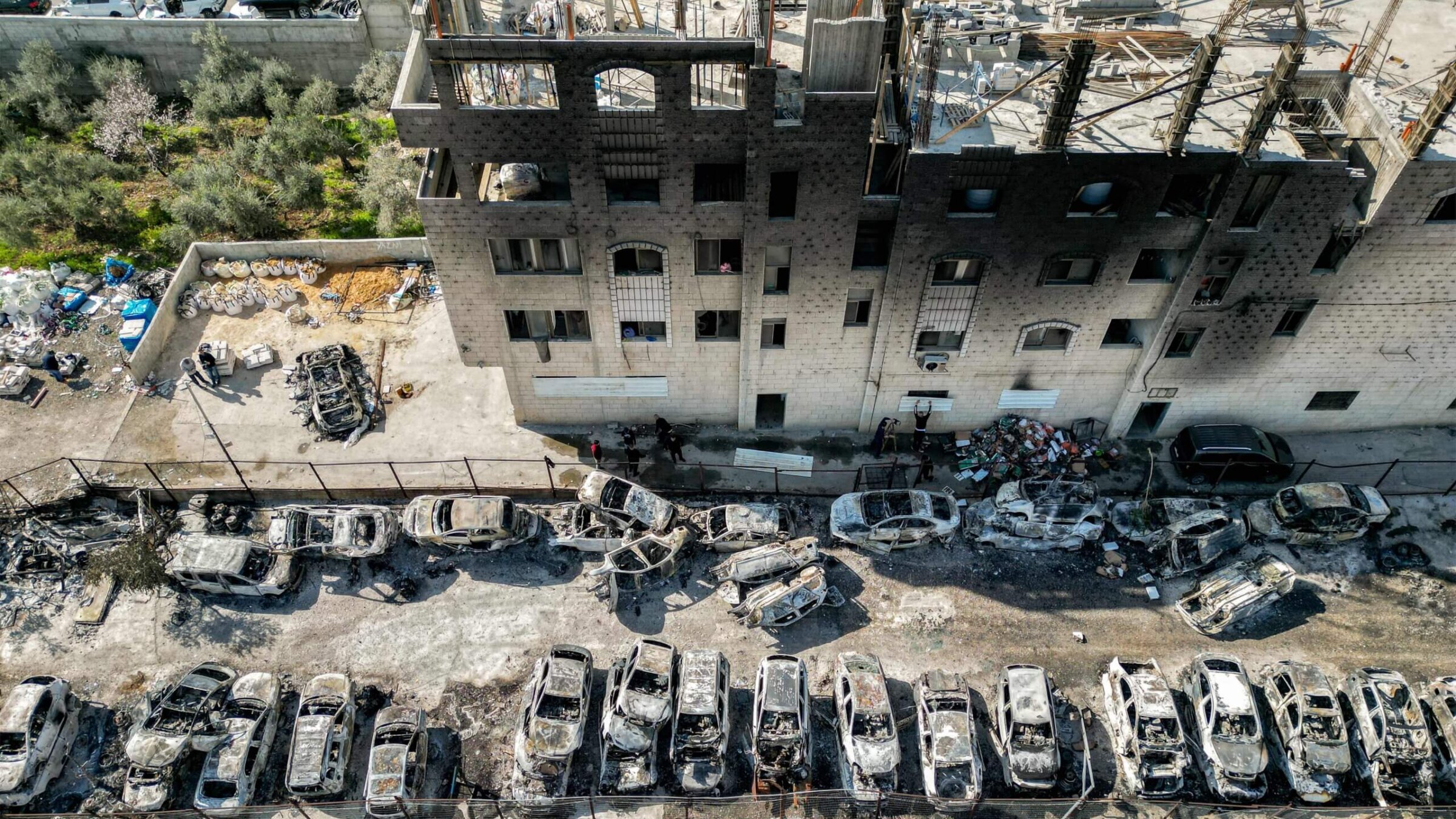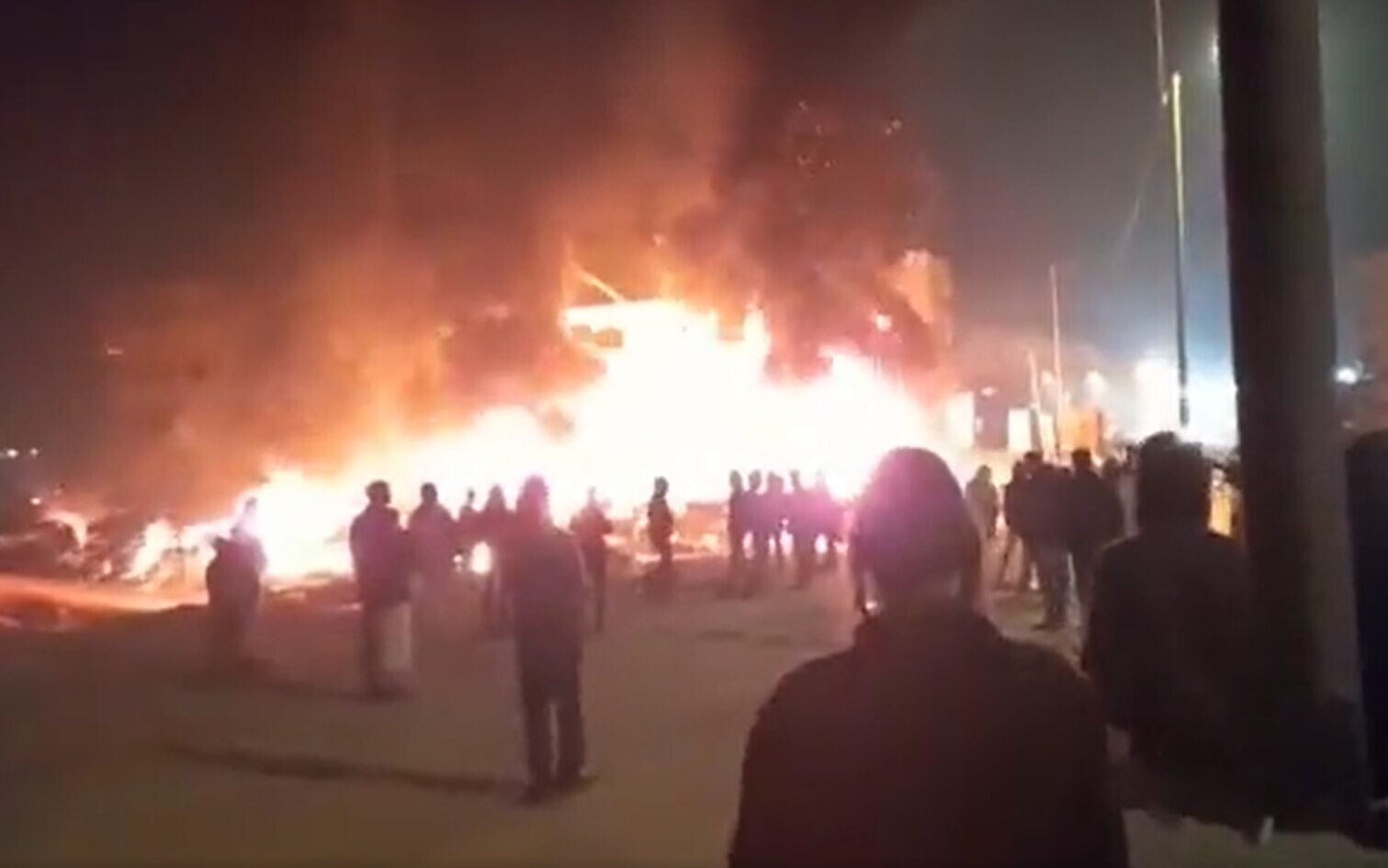In occupied Palestine, one bloody crime against the Palestinian people follows another. As reported in previous articles, the Israeli colonial state is currently intensifying and increasing immensely the violence against the national liberation movement and the Palestinian people. Recently, there have been ruthless attacks by settlers in four cities.
After 11 Palestinians were murdered by reactionary forces in a military operation in Nablus in the West Bank on February 22 and more than a hundred Palestinians were injured in the ensuing fighting, Israeli military forces shot 22-year-old Palestinian Mohammed Jawabreh in the head a day later in an extralegal execution during a raid Such extralegal murders could soon be committed quite legally or at least in retrospect could be legally justified even more than now. On Sunday, February 26, the Israeli parliament passed in its first session a law on the reintroduction of the death penalty for alleged "terrorists". According to the law, in the future all those who attack "the State of Israel and the rebirth of the Jewish people in its homeland" can be sentenced to death by courts and legally murdered. This law will not only apply to Israeli state territory, but also explicitly to the occupied territories of the West Bank. Soon it will be legal for the Israeli state to execute members of the national liberation movement for acts of resistance against the Zionist occupation of their homeland.

In response to the repression and violence against the Palestinian movement, on the same day, Palestinian fighters attributed to the resistance organization "Lion's Den" carried out an attack on two Israeli settlers and military personnel in the Palestinian town of Huwara, ramming the car of the two settlers and then opening fire. As a result, hundreds of Jewish settlers gathered outside of Huwara Sunday night and marauded through the streets. In the pogrom, more than 19 cars and 30 houses were set on fire and stones and bottles were thrown at them. The settlers also invaded the houses and apartments of Palestinians and literally beat them out of their own homes. In addition, there are reports of Palestinians being stabbed with knives and attacked with metal rods. Hundreds of Palestinians were injured in these attacks by settlers and the Zionist army. Sameh Aqtash, a 37-year-old man who had recently returned from rescue work for earthquake victims in Turkey was killed in the attacks. According to the brother of the murdered man, the two were first attacked by settlers in front of a metal processing workshop who later return again with reinforcements from the Zionist occupation army, who shot Sameh in the stomach, after which he bled to death.
The following Monday, there was a revenge action by forces of the Palestinian resistance on the settlers' riots, in which an Israeli-American ex-soldier was shot dead on the highway by Palestinian militants.

In the aftermath of these events, the Israeli finance minister in charge of settlement construction, praised the settler pogroms and literally called for the "wipe-out" of the Palestinian village of Huwara, his only criticism being that this should be done by the state, not by the settlers. Another Israeli government deputy called for Huwara to be "sealed off and burned down." Meanwhile, the number of Palestinians killed this year by the Zionist state rises to 65.
The settlers' pogrom and the fascist extermination fantasies of Israeli government politicians are part of the current policy of the extreme reactionary, Zionist government coalition. In addition to the law on the death penalty for "terrorists" last Sunday, the so-called "Deportation Law" was passed at the end of January, which states that people with Israeli citizenship and residence in Israeli territory can be expelled and deported if they commit crimes that "violate the trust in the State of Israel". With this law, de facto, all people who protest against the Zionist state and its policies can be deported in the future. Even beyond the context of the national liberation struggle of the Palestinian people, the Israeli government has met with much criticism in recent days. This week, tens of thousands of people took to the streets to protest the planned judicial reform. The bill would allow the Israeli parliament to explicitly pass laws that violate the Israeli constitution, and would strip the attorney general and the supreme court of the power to suspend the prime minister. Protesters were attacked by police in Tel-Aviv and other cities with stun grenades and tear gas.
